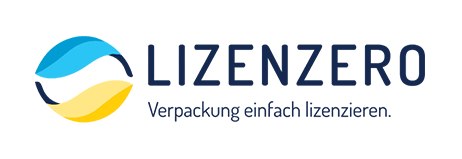Minimise risks: Legal basis for successful sales on marketplaces
Content:
- Your packaging materials under the German Packaging Act
- The one-stop shop rule and the Platform Tax Transparency Act
- Electrical and Electronic Equipment Act: Challenges and obligations at a glance
- Risk minimisation and practical tips
- Conclusion
Selling via e-commerce platforms offers you as a retailer a wealth of opportunities, but also harbours a number of legal challenges. Due to the high level of competition, you should not only market your products effectively on marketplaces, but also create a solid legal basis.
Some legal regulations are already covered by the e-commerce platforms that you can use for your sales. However, as a marketplace retailer, you are directly responsible for issues such as the German Packaging Act (VerpackG), tax regulations and the German Electrical and Electronic Equipment Act (ElektroG). In this blog, we will therefore look at the legal aspects that you should not neglect in Germany in order to minimise risks and ensure successful marketplace sales.
Your packaging materials under the German Packaging Act
The Packaging Act regulates the handling, disposal and recycling of packaging materials. Marketplace retailers are also affected by the Packaging Act. If you sell goods to end consumers, you are required to licence the sales packaging of the goods with a dual system such as Interseroh+ via Lizenzero and report it to the Zentrale Stelle Verpackungsregister (ZSVR) in LUCID as part of a system participation obligation. The ZSVR serves as a monitoring body for compliance with the VerpackG and, with the LUCID register, provides a publicly accessible overview of all companies registered in Germany. If you do not fulfil these obligations, you will be excluded from selling goods on marketplaces and may face high fines of up to 200,000 euros.
Packaging that requires a licence generally includes the product and shipping packaging that you send to end consumers. Cases in which marketplace traders use dropshipping are an exception here. By licensing your packaging, for example with us, you fulfil your extended producer responsibility with regard to the return and disposal of your products. The licence fee that you pay to a dual system finances the collection, sorting and recycling of packaging waste.
To fulfil your system participation and reporting obligations correctly, you should follow the following three steps:
- Register with the Zentrale Stelle Verpackungsregister in the LUCID reporting register
- Licence your annual packaging quantities with a dual system such as Interseroh+ via Lizenzero (our calculator will help you calculate your licence quantities)
- Report the name of your dual system and your licensed packaging quantities to the LUCID reporting register
Once you have completed these steps, there are only a few follow-up obligations with regard to the Packaging Act. Once a year, you should complete your year-end report and report to your dual system and LUDIC how much packaging you have actually put into circulation. At the end of each year, you should also submit your planned quantity report for the new year to your dual system and enter this data in LUCID as well. We support you in fulfilling these obligations with our Lizenzero comfort bundle, with a simple licensing process, personal advice and timely reminders.
Enter packaging quantities now

The one-stop shop rule and the Platform Tax Transparency Act
In the dynamic environment of marketplace trading, an understanding of tax regulations is crucial. The one-stop shop regulation (OSS) has been in force since 2021 and simplifies VAT reporting and tax obligations in the e-commerce sector. The EU regulation has replaced the mini-one-stop-shop procedure. By registering in the BZSt online portal (BOP), you can submit your declarations that fall under special regulations electronically to the Federal Central Tax Office (BZSt). This mechanism considerably simplifies VAT reporting and also makes it possible to report VAT for cross-border transactions via a central point of contact. This means that all goods and services in the B2C sector that are sold across borders in the EU can be declared in the OSS. This procedure not only makes it easier for you, but also for the tax authorities to record and monitor sales and helps to simplify international sales.
One advantage is that the procedure does not only apply within Germany. If you also sell in other EU countries, by registering for the OSS procedure you also participate in a standardised manner in all EU member states. If you were already registered for the previous Mini-One-Stop-Shop procedure, you will automatically participate in the OSS procedure. If you were not previously registered, you can apply for participation by providing your VAT identification number to the BZSt. In order to fulfil your obligations here, you should make sure that you submit your quarterly tax return on time.
In addition to the OSS regulation, another tax change was introduced in the e-commerce sector in 2023. With the Platform Tax Transparency Act, operators of marketplaces are now obliged to report detailed information about the income of their traders on their platforms to the tax authorities. This step represents the implementation of a corresponding EU directive introduced by the German legislator. The regulation creates transparency about income flows on digital platforms and enables the tax authorities to monitor them more closely. For you as a marketplace trader, however, this regulation does not change your tax obligations.
Electrical and Electronic Equipment Act: Challenges and obligations at a glance
If you manufacture and sell electrical or electronic appliances yourself as a retailer, resell them under your own name or brand or purchase electrical appliances from abroad and import and sell them in Germany, you are also affected by the ElektroG in addition to the VerpackG. The German Electrical and Electronic Equipment Act transposes the European WEEE Directive into national law. The abbreviation WEEE stands for "Waste Electrical and Electronic Equipment" and, similar to the VerpackG, is based on the principle of Extended Producer Responsibility (EPR).

When selling electrical appliances via e-commerce platforms, you should observe the following points:
- Register as a manufacturer on the EAR Foundation portal (even if you only trade in the relevant goods and do not produce them yourself).
- Make sure that a declaration of your goods is available and that it is deposited with the EAR Foundation.
- Commission a recycling company to handle the entire disposal and recycling process on your behalf.
- Ensure that all appliances are clearly labelled so that the manufacturer can be identified, for example by brand names, trademarks or company numbers.
- In the final step, you will receive a WEEE registration number, which you can register with your marketplace.
Interzero provides a WEEE portal for commissioning as your recycling company in order to quickly and conveniently fulfil your obligations under the ElektroG.
Risk minimisation and practical tips
In addition to the specific laws and regulations, there are also general principles that help you to minimise risks.
- Regular training and updates: Keep up to date with new legal changes and requirements. Training and regular updates will help you to keep your legal knowledge up to date.
- Seek legal advice: Invest in professional legal advice to ensure you understand all relevant laws and regulations. Experts can help you recognise risks and take preventative measures.
- Documentation and records: Keep records of your business activities. Documenting your packaging licences, tax reporting and other relevant information makes it easier to comply with regulations and creates transparency.
- Collaborate with experienced service providers: Work with proven service providers to help you fulfil your obligations. This can include the licensing of packaging materials, tax processing or the implementation of ElektroG obligations.
Conclusion
When it comes to marketplace sales, legal principles are not just an obligation, but a decisive factor for your sustainable success. With the right understanding and appropriate measures, you can minimise risks and secure a competitive advantage. By complying with the VerpackG obligations, utilising the One-Stop-Shop regulation and correctly implementing the ElektroG, you demonstrate a clear commitment to transparency and responsibility.




